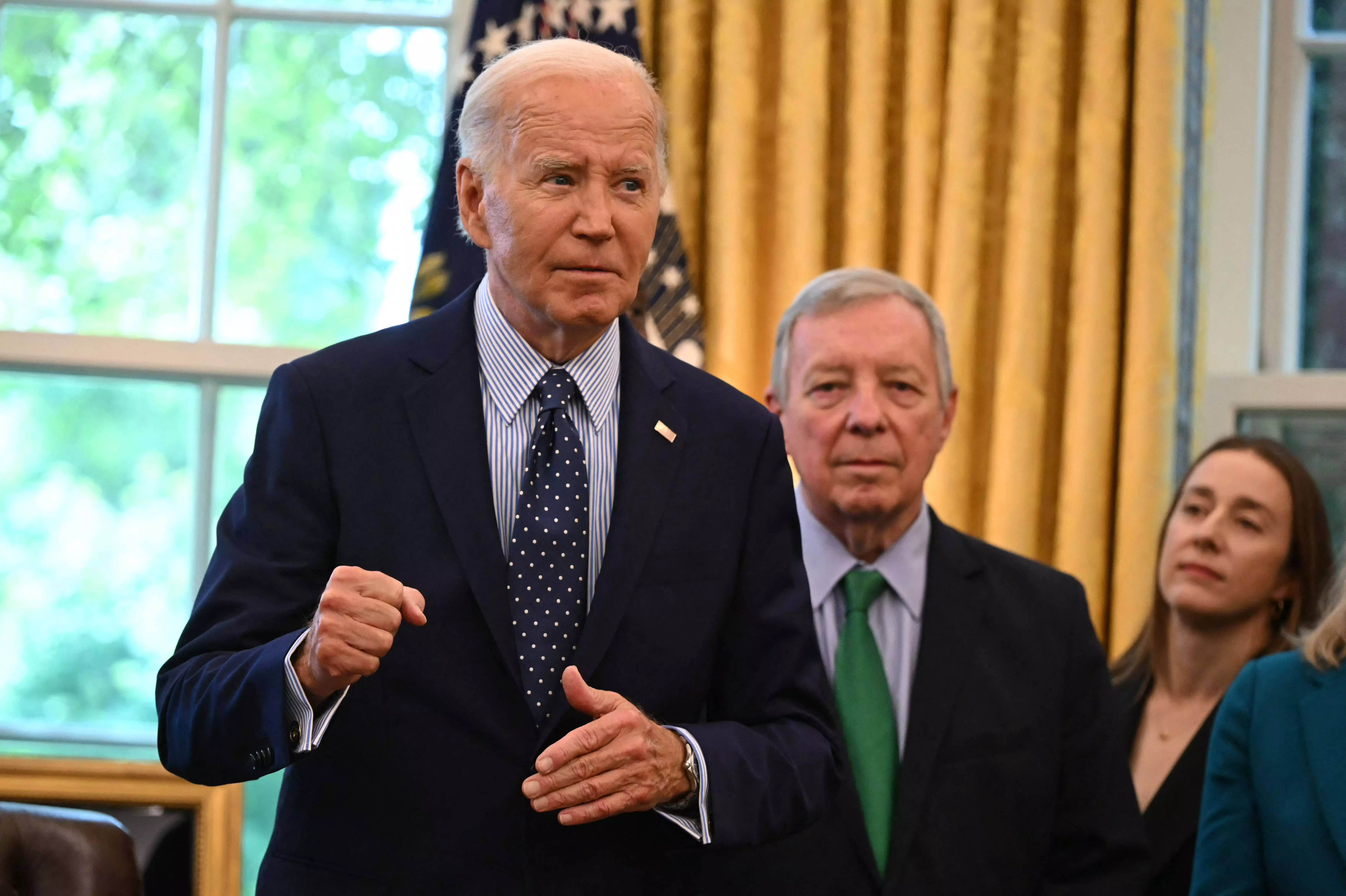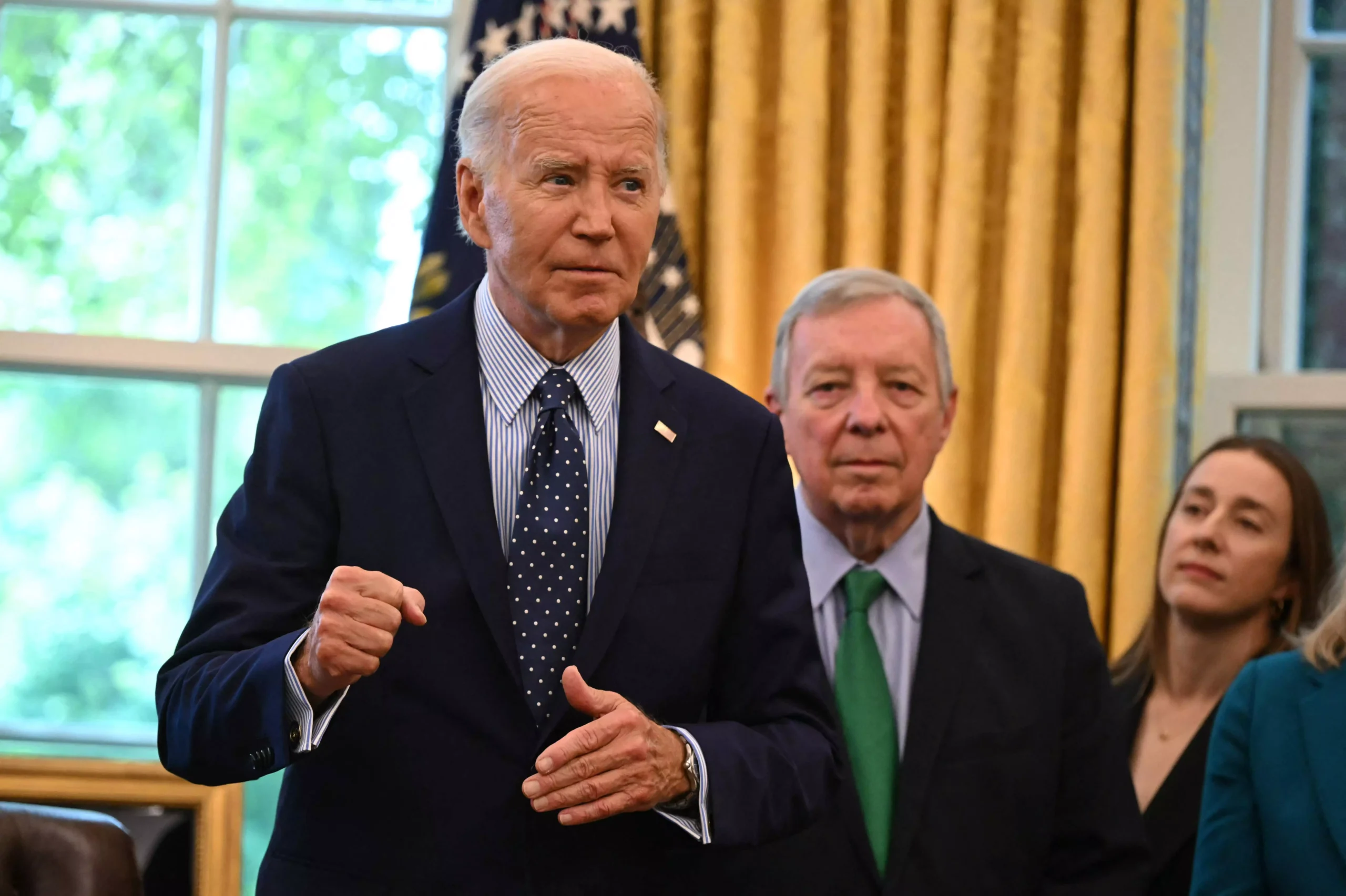
Diplomatic efforts have so far failed to alleviate the suffering endured over more than 10 months of war, but US President Joe Biden insisted after the latest round of talks that “we are closer than we have ever been”.
He is sending US Secretary of State Antony Blinken to Israel this weekend to push the latest proposal, the State Department said.
Egyptian, Qatari and US mediators have been seeking to finalise details of a framework initially outlined by Biden in May, which he said Israel had proposed.
In a joint statement, the mediators said they had presented both sides with a proposal that “bridges remaining gaps” and will continue working in the coming days to hash out the specifics on humanitarian provisions and the hostage-prisoners swap.
Talks aiming to secure a rapid deal are set to resume in Cairo “before the end of next week”.
Hamas, which did not attend the Doha talks, swiftly announced its opposition to what it called “new conditions” from Israel in the latest plan.
Israeli Prime Minister Benjamin Netanyahu called on mediators to “pressure” Hamas to accept Biden’s framework.
Threats by Iran and its proxies to attack Israel have added renewed urgency to the efforts to hammer out a Gaza ceasefire, with mediators seeking a deal in the hopes of dousing a wider regional conflict.
“No one in the region should take actions to undermine this process,” Biden warned, later telling reporters, “There’s just a couple more issues, I think we’ve got a shot.”
‘Cataclysmic’ consequences
An informed source told AFP Hamas had objected to conditions about keeping Israeli troops on Gaza’s border with Egypt and terms related to the release of Palestinian prisoners in exchange for Israeli hostages.
Western ally Jordan, however, put the blame squarely on Netanyahu for blocking a deal, with Foreign Minister Ayman Safadi urging pressure “by everyone who wishes to see this through to completion”.
British Foreign Secretary David Lammy and his French counterpart Stephane Sejourne held talks in Israel on Friday to press the deal.
Israeli Foreign Minister Israel Katz told his visiting counterparts he expects foreign support if Iran seeks to avenge the assassination of Hamas leader Ismail Haniyeh in Tehran.
Sejourne replied that it would be “inappropriate” to discuss responding to any attack while diplomacy to stop it from happening is in high gear.
A senior US official, speaking to reporters on condition of anonymity, said Iran would face “cataclysmic” consequences if it strikes Israel.
A deadly attack by Israeli settlers in the occupied West Bank late Thursday drew international condemnation and calls for sanctions, including against government ministers, over the surge in settler violence against Palestinians since the Gaza war began.
The Israeli military said “dozens of Israeli civilians, some of them masked”, entered the village of Jit and “set fire to vehicles and structures in the area, hurled rocks and Molotov cocktails”. A Palestinian man was shot dead.
The West Bank-based Palestinian foreign ministry described the attack as “organised state terrorism”.
The European Union’s top diplomat, Josep Borrell, said he would propose sanctions against Israeli government “enablers” of Jewish settler violence.
Israeli far-right Finance Minister Bezalel Smotrich, a proponent of West Bank settlements, was quick to join other Israeli leaders in condemning Thursday’s attack by “criminals”.
First polio case recorded
Hamas’s unprecedented October 7 attack on Israel that triggered the war resulted in the deaths of 1,198 people, mostly civilians, according to an AFP tally of Israeli official figures.
Militants also seized 251 hostages, 111 of whom are still held in Gaza, including 39 the military says are dead. More than 100 were freed during a one-week truce in November.
On Thursday, the toll from Israel’s retaliatory military campaign topped 40,000, according to the health ministry in Hamas-run Gaza, which does not provide a breakdown of civilian and militant casualties.
The war has devastated the besieged territory’s healthcare infrastructure, prompting repeated warnings from the World Health Organization about the risk of preventable diseases.
On Friday, the Palestinian health ministry reported an unvaccinated 10-month-old child in Gaza had been diagnosed with polio, the territory’s first case in 25 years, according to the WHO.
The announcement came hours after UN chief Antonio Guterres called for two seven-day breaks in the Gaza war to vaccinate more than 640,000 children against type 2 poliovirus, which was first detected in the territory’s wastewater in June.
As truce talks were underway, thousands of civilians were on the move again inside the Palestinian territory after the Israeli military issued fresh evacuation orders ahead of imminent military action.
The UN estimated the orders affect more than 170,000 people, forcing them to pack into the shrinking remnants of an area declared a humanitarian safe zone.
The area where people have been told to relocate to makes up just 11 percent of Gaza, according to the UN.
“During each round of negotiations, they exert pressure by forcing evacuations and committing massacres,” Issa Murad, a Palestinian displaced to Deir al-Balah, said of the Israeli forces.
